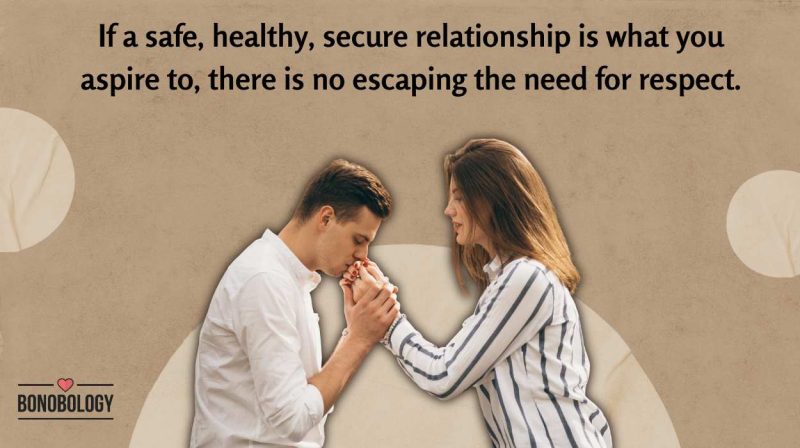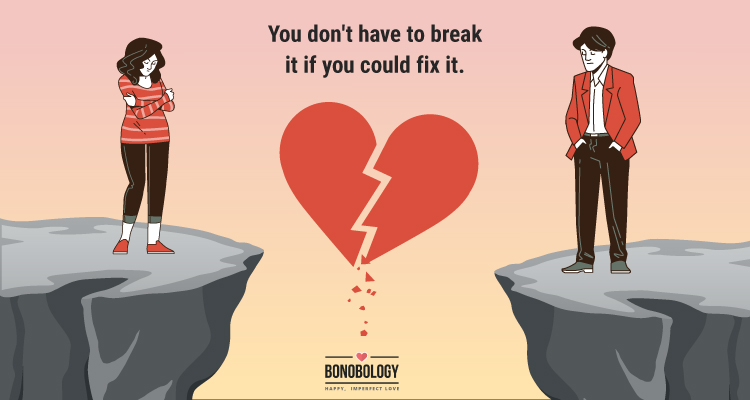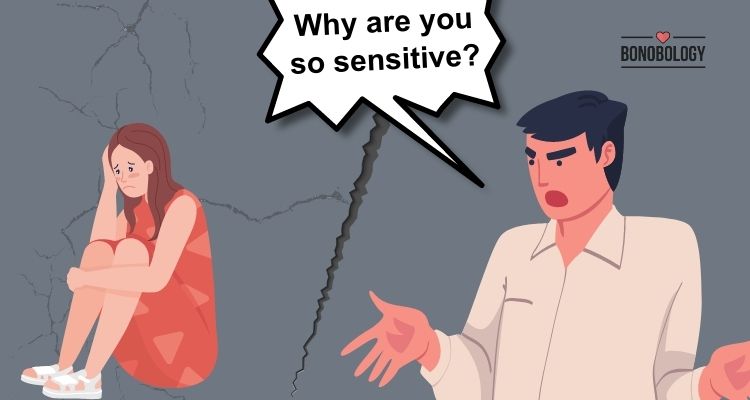Every relationship goes through its fair share of challenges. It takes a lot of effort, proper communication, and patience to build a healthy and long-lasting relationship. Partners may not see eye-to-eye on a lot of things but it is how they handle those differences and come together as a couple that matters. However, if one partner goes incommunicado and the other is left to figure out how to deal with stonewalling, then that’s a problem.
For the unaware, stonewalling is basically giving your partner the silent treatment. Such a toxic behavior pattern can have long-term effects on the relationship as well as on both parties involved, especially the one at the receiving end of it. We spoke to Avantika Tripathi, who specializes in social anxiety, stress management, mindfulness, and relationship counseling through rational-emotive and person-centered therapy, to understand what stonewalling is, how it damages a relationship, and how to deal with stonewalling if one falls prey to it.
What Is Stonewalling?
Table of Contents
Before we discuss how to respond to stonewalling in marriage, let us understand what stonewalling means. It refers to a toxic and abusive behavior pattern where one partner cuts off all communication and gives their significant other the silent treatment. Avantika says, “In the face of a conflict in a relationship, one partner deliberately refuses to communicate about the problem. They become unresponsive to the other partner’s efforts to initiate conversations to the extent that they shut down completely and snap all communication ties.”
Stonewalling may come across as a harmless or normal tactic to deal with conflict in a relationship or marriage but it’s not. When a person cuts off all communication (texts, calls, emails, or any other verbal and non-verbal cues) or is unreachable and inaccessible for days, weeks, or even months, it is bound to take a massive toll on their partner, who is at the receiving end of such behavior. Trying to talk to them is like banging into a stone wall. Stonewalling can be intentional or unintentional depending on how the person uses it to avoid conflict.
Related Reading: Romantic Manipulation – 15 Things Disguised As Love
1. Intentional stonewalling
At times, a person uses stonewalling to teach their partner a lesson, gaslight or control, and dominate them to avoid conflict or argument in the relationship. They intentionally give their partner the silent treatment to manipulate the situation in their favor. This is also done to gain control and power, inflict punishment, avoid emotional discussion or engagement, and gaslight or dismiss their partner’s concerns.
2. Unintentional stonewalling
Stonewalling can also be a trauma response that partners use to deal with conflict in a relationship. Avantika elaborates, “Stonewalling is often viewed as a coping mechanism by the one who does it since they feel that discussing issues or concerns will only aggravate problems and stress levels. This can trigger and cause them to develop emotional and psychological imbalances, which is why stonewallers feel that it is better to walk out or go silent instead of talking about the issue.”
Is stonewalling abuse? Stonewalling is a tactic usually used by those with low self-worth. It can be considered a form of emotional abuse in a relationship because stonewallers generally resort to such a behavior pattern to humiliate, disrespect, control, or belittle their partners. It could be a defense mechanism they learned in childhood to maintain peace with their caregivers. It is also possible that they learned this tactic from their past relationship experiences and thought it to be an effective way to avoid uncomfortable discussions.
Avantika adds, “When one partner feels mentally and emotionally disturbed, tired or depressed, they refrain from talking about issues. Any communication made to address the same can trigger them. If they face any kind of toxicity or abuse in the relationship, they go silent and choose to not react to problems. Eventually, they avoid problems completely by cutting off all communication.”
How Stonewalling Damages A Relationship
It is important to know its signs and impact on a relationship so that you can figure out how to deal with stonewalling. Avantika says, “A few common signs of stonewalling include either partner withdrawing themselves completely from any kind of uncomfortable discussion without explanation, giving no reaction, avoiding eye contact, or walking out of a conversation.
“They tend to change or skip the subject that involves discussing feelings or things that are of concern in their relationship. Sometimes coming home late and going straight to sleep to avoid discussion can also be a sign of stonewalling.” There could be several underlying causes behind such behavior but the fact of the matter is that stonewalling can cause immense damage to the relationship and the overall well-being of both parties involved.
“It can take a great toll on the mental health of the partner who is having to deal with a stonewalling wife or husband because this kind of behavior pattern makes them feel helpless, confused, and overwhelmed about the relationship.” Here are 5 ways stonewalling damages a relationship:
1. Feelings of abandonment, doubt, and anger
Stonewalling gives rise to feelings of isolation, abandonment, doubt, anger, and fear in the mind of the partner at the receiving end of it. They begin to question their self-worth. They feel unwanted, helpless, abused, unheard, and disrespected because they are unable to talk or connect with their significant other. What hurts the most is that their stonewalling partner doesn’t even care about it and comes across as emotionally detached. This makes them worry about the future of their relationship.
Avantika explains, “Stonewalling can damage relationships by triggering doubts and fear in the mind of the partner who is being stonewalled. It can make a person feel insecure since stonewallers withdraw themselves emotionally and refrain from showing concern to their partner. It makes them go through emotional suppression because they are unable to discuss their relationship issues with their partner.”
2. Less satisfaction in the relationship
Stonewalling puts a break on a couple’s efforts to work toward resolving conflict together as a team. Partners need to come up with solutions as one unit but, if one partner resorts to the silent treatment, there’s a higher chance of issues getting more complicated. The situation or conflict gets escalated instead, which can be detrimental to the relationship in the long run.
Being stonewalled can be quite frustrating for the one who’s forced to bear the brunt of it. It can cause trivial fights to escalate. Minor relationship arguments may spiral out of control and spell doom for your bond. The frustration and desperation to talk might make them say or do things they will regret later. This might increase the severity of the conflict that could have been solved by having an honest conversation.
3. Difficult to feel intimate with their partner
It becomes difficult for the partner being stonewalled to feel any kind of intimacy with their significant other. The constant silent treatment makes them feel unworthy of love. In a relationship, nobody likes to feel as if they don’t exist or that they are a terrible person. No one likes to be disrespected or humiliated by their partner. If this happens daily, it’s hard for the one being stonewalled to feel intimate or to feel the same amount of love for their partner.
4. Increased risk of depression and anxiety
Not knowing how your partner is feeling, what’s going on in their mind, or your place and worth in the relationship and their life, can be frustrating and lead you to overthink. Several studies have linked stonewalling to increased levels of stress, depression, anxiety disorders, self-doubt, low self esteem and self-worth, and cardiovascular and musculoskeletal symptoms, besides other physical health issues.
“It can cause a lot of suspicion in the mind of the partner being stonewalled. The unusual behavior of the stonewaller can make their partner think too many things at the same time – are they having an affair with someone, do they want to end the relationship, is it a manipulation tactic, have they fallen out of love, etc.”, says Avantika. Such thoughts can take a massive toll on their overall well-being, leading to mental health issues.
5. Increased risk of a breakup
It is also possible that either partner may not want to figure out how to deal with stonewalling because they’re so tired of such behavior that they just want out. If stonewalling becomes routine in a relationship, the chances of a breakup are higher. If one partner’s efforts to initiate conversation go in vain every single time there’s conflict, they are bound to think whether staying in this relationship is worth it. If the stonewaller withdraws, cuts off all communication, or resorts to the silent treatment, their partner might feel unloved and unworthy.
It takes effort from both partners to make a relationship work. But if either partner makes it a habit to shut down emotionally or is reluctant to resolve conflict, sustaining the relationship becomes difficult. It is mentally and emotionally exhausting for the person at the receiving end of it to keep worrying about what their fault was or what their partner thinks or feels about them. They might feel like their partner is hiding something from them. They might also feel that their partner wants to end the relationship, which is why they are stonewalling.

9 Expert Backed Steps To Deal With Stonewalling In A Relationship
According to Dr. John Gottman, stonewalling is one of the Four Horsemen that indicates or increases the likelihood of divorce. Such a toxic behavior pattern can cause permanent damage to a relationship because all communication just ceases to exist. Minor arguments escalate because the stonewalling partner refuses to talk. This leads to frustration causing the one bearing the brunt of it to act desperate and say things that they probably don’t mean.
In such a scenario, you’re probably asking yourself, “How do I deal with a stonewalling wife or husband or partner?” or “How do I respond to stonewalling in marriage or a relationship?” Well, you can explore how to deal with stonewalling but it’ll only yield results if both you and your partner work together as a team. Blame-shifting will only cause you to neglect the bigger issues and worsen the problem instead of solving it. Here are 9 ways how to deal with stonewalling in a relationship:
1. Take a break and look after yourself
One way to respond to stonewalling in marriage or a relationship is to take a break from each other and look after yourself. Sometimes, staying away from your stonewalling partner, and giving them and yourself some space helps you avoid feeling overwhelmed or emotionally aroused during conflict resolution. According to Gottman, taking a 20-minute break to gather your emotions and regain composure helps solve problems better.
According to Avantika, “If you have the option of staying away or taking a break in a relationship for a while, do so. Often, when given space, a stonewalling partner gets time to introspect their behavior. Stonewallers can often end up feeling suffocated and, therefore, need their stress-free days to think about the issues they are avoiding. Giving each other space can break the negative cycle and offer a scope to communicate.”
Make use of this time to take care of yourself. Do things you like – go on a vacation, visit your old friends and family, practice a hobby or pick up a skill. Anything that gets your mind off conflict and helps you calm down. This does not mean that you don’t love or care for your partner. It only means that you’re choosing to take care of yourself when faced with stonewalling every time there are issues in the relationship.
2. Re-engage when ready
After you’ve taken a break and disengaged yourself, it’s time to get back to the conversation and resolve the conflict. That’s the whole point of a timeout – to re-engage when you feel ready to have a conversation. It also assures your partner that you will return to solve the problem. So, take as much time as you need to deal with your emotions. However, make sure to let your partner know that you’re taking some time out to process everything and will return to sort the matter. Most importantly, stick to your word.
Promising to return to the conversation will build trust in a relationship and establish a sense of security between you and your partner. This might also make them think twice before stonewalling you again. Plus, it also makes you self-reliant in the sense that you don’t have to depend on your partner to decide when they want to talk. You can take your own time to deal with the situation and prioritize yourself. Tell your partner how their stonewalling or giving you the silent treatment makes you feel. Don’t dismiss it as a typical behavior pattern in relationships.
Related Reading: 13 Signs He Disrespects You And Does Not Deserve You
3. Seek a counselor’s help
Avantika recommends seeking the help of a professional if things spiral out of control. She says, “A stonewaller can appear cold-hearted and inconsiderate. This behavior can make a person undergo a great amount of emotional stress and psychological discomfort. A therapist can help attain balance in these stressful times, which is why it can be beneficial to reach out to a relationship counselor. Often, when two people are unable to cooperate, they might need an expert’s intervention to work through their issues.”
For a relationship to thrive, partners need to find the right tools to communicate. Stonewalling is one of the signs of bad communication in relationships. A therapist or relationship counselor can help you express better and resolve conflict using different therapy techniques. Try couples therapy to figure out how to deal with stonewalling. Additionally, a therapist offers a safe space to talk about your emotions, which might just help your stonewalling partner open up about their issues. If you’re stuck in a similar situation, Bonobology’s panel of licensed and experienced therapists is only a click away.
4. Don’t feel guilty
This is one of the most important tips on how to deal with stonewalling in a relationship. Don’t be too hard on yourself if you’re constantly having to deal with a stonewalling wife or husband or partner. In such a situation, feelings of hurt, anger, worry, fear, and disappointment can be overwhelming.
You might feel like it’s all your fault but just take a step back, assess the situation, and understand whether you deserve to be treated this way. Know that it’s not your fault if your partner decides to go incommunicado or shut you out instead of communicating and solving the problem.
5. Take a softer approach
According to Avantika, taking a softer approach is one of the most crucial tips on how to deal with stonewalling. “Sometimes, it is necessary to offer congenial vibes while trying to address the issue. When you take a softer approach, the stonewaller feels at ease and understands that their other half is interested in addressing the issue and is trying to resolve it. It makes the stonewaller feel receptive and open to discussing the issue,” she says
She suggests starting the conversation by saying something like, “I know you don’t want to talk about things right now. But, if we leave things unaddressed, they can affect our relationship negatively, and this is not what I want. So, let me know whenever you feel comfortable, open and willing to discuss things. We will do so. I don’t want to push you. Please take your time.”
Avantika further adds, “Tell your partner that you are willing to understand their state of mind and that you want them to communicate about that first instead of the issues between both of you. Showing emotions alongside being able to communicate rationally will make your partner overcome the mental barriers and communication restrictions that they may have formed in their head.”

6. Tell your partner how you are feeling
When trying to discern how to deal with stonewalling, make sure you communicate your feelings to your partner instead of making accusatory statements. Your partner needs to hear how their behavior affects you and the damage it does to the relationship every time they engage in stonewalling you. You have to explain your point of view and communicate your feelings, not indulge in a blame game.
“A partner might express their rage and anger in the wrong way when faced with a stonewalling situation, instead of expressing the need for conflict resolution. When you are being stonewalled by your partner, communicate to them how you feel when they become silent over matters that need an active effort to be resolved,” Avantika explains.
7. Don’t talk about the past
Practicing forgiveness and not bringing up past issues is another tip on how to respond to stonewalling in marriage. According to Avantika, “Sometimes a stonewaller chooses to not deal with the problem at all because their partner might bring up past issues that could remind them of their failure in dealing with the situation. This can make them feel at fault. Avoid talking about their past failures and mistakes and focus only on the present issues while talking.”
Bringing up the past will do more harm than good. Let bygones be bygones. Stonewalling hurts but you must have a forgiving heart if you want to deal with a stonewalling wife or husband or partner. It’s already difficult for them to express their emotions. Bringing up the past will make them withdraw into a shell. In such a situation, it’s advisable to let go and work toward building a healthy relationship with your partner.
8. Show care and concern
While it’s a good idea to give your partner space to deal with their emotional struggles, make sure to show concern. Check in on them. Don’t nag or pester but check in to see how they are doing. Just the normal “how are you?” or “let’s talk when you feel better” or “please let me know if you need anything” is enough to let your partner know that you’re genuinely concerned and that you’re still there for them. It’ll help break barriers.
Avantika says, “Let them know that you genuinely care about them. It becomes difficult to show concern when the stonewalling partner erects a wall around themselves and refuses to communicate. However, showing care and concern can open channels of communication for both of you. When a stonewaller feels empathy around them, they might choose to talk instead of withdrawing because they feel that you are on their side and genuinely willing to understand.”
Related Reading: 18 Ways To Show Someone You Care
9. Listen to your partner and accept your mistakes
Listen patiently to what your partner has to say as it will help de-escalate the situation making it easier to address the issue at hand. Avantika says, “When a stonewaller gets room to talk, they feel at ease, which is why you must give them the chance to express themselves. Be a good listener because it ensures easy and smooth communication. It will also give you a chance to understand the reason behind your partner’s silence and their refusal to talk about important issues in the relationship.”
Another crucial element when it comes to dealing with stonewalling is to accept your mistakes and apologize to your partner when you’re in the wrong. “Talk about your partner’s stonewalling behavior but also be willing to accept your mistakes. Assure them that, if your behavior has hurt them in the past (because of which they are ignoring all attempts made to resolve conflict), you will try to change it for good,” she adds.
We hope these tips on how to deal with stonewalling help you. But, all said and done, if the relationship has turned too toxic for you, it’s best to walk out. If things have spiraled out of control and you’ve done all you could to save the relationship yet the situation hasn’t gotten any better, we suggest you seek help or end the relationship.
One should never tolerate abuse or disrespect in the name of love. However, if you think that you can fix the situation and both you and your partner are willing to work toward it, then go ahead by all means. We hope the above ways help. Good luck!
FAQs
There are several ways to deal with stonewalling. One way is to be diplomatic about it. Tell them that you’re not comfortable with such a toxic behavior pattern. Let your partner know that you’re willing to talk about the problem and sort it out. Give them space to deal with their emotions and, at the same time, practice self-care. Stay away from aggression.
Communicate how you feel without making any accusatory statements. Playing the blame game will only worsen the situation. Let them know that you care and that you’re there for them. This will show your partner that you’re genuinely concerned and might just make them open up to you. Tell them you’re willing to talk when they feel ready.
Stonewalling can be a trauma response that your partner probably learned in childhood to cope with difficult situations or emotional struggles. In such a scenario, understand that they are not intentionally stonewalling or giving you the silent treatment. They are doing it because that is the only way they’ve known to deal with conflict. They are scared of how their partner might react if the conflict escalates.
Your contribution does not constitute a charitable donation. It will allow Bonobology to continue bringing you new and up-to-date information in our pursuit of helping anyone in the world to learn how to do anything.























Featured
6 Tips for Helping Your Partner Quit Smoking in Their 50s
How He Treats You Is How He Feels About You — Is It True?
How To Let Someone Down Easy With Kindness And Grace — 13 Tips
How To Show Respect In A Relationship — 9 Ways
The Pitfalls Of Nice Guy Syndrome: How It Affects Relationships
Navigating The Complexities Of Consent In Modern Relationships
11 Ways To Deal With A Sexually Demanding Husband
Accountability In Relationships – Meaning, Importance, And Ways To Practice
How To Apologize To Your Boyfriend: 15 Ways
10 Thought-Provoking Relationship Check-In Questions for Deeper Connection
Is A Monogamous Relationship Right For You? 11 Questions To Help You Find Out
10 Signs You Are In A Truly Stable Relationship (Even If You Feel Otherwise)
7 Subtle Signs Your Partner is Quiet Quitting Your Relationship
Secure Relationships – What Are They And What Do They Look Like?
Physical Touch Love Language: What It Means With Examples
Do I Like Him Or The Attention? Ways To Find Out The Truth
17 Non-Negotiables In Relationships You Must Never Compromise On
15 Ways To Solve Relationship Problems Without Breaking Up
9 Common Narcissist Gaslighting Examples We Hope You Never Hear
The Most Important 7 Qualities Of A Healthy Relationship